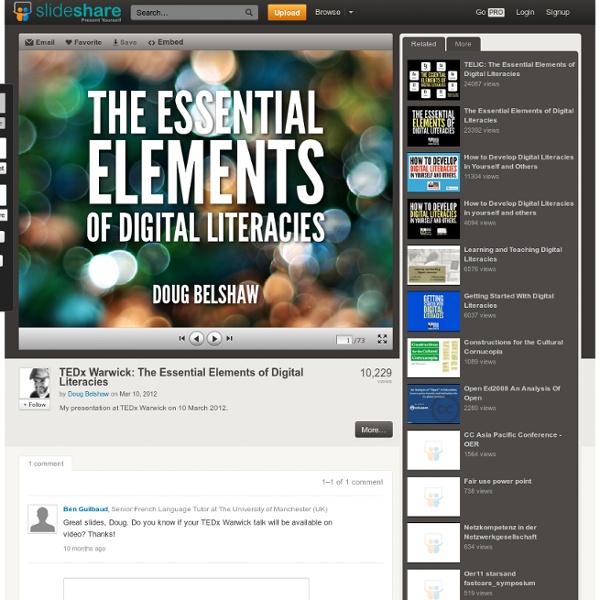



Webmaker/WebLiteracyMap Important note: Mozilla's Web Literacy Map was co-created with the community. It describes the skills and competencies required to read, write and participate on the web. It can be found at webmaker.org/literacy. Please use this URL when citing. A graphical representation of the competency layer can be found below and at webmaker.org/resources. Get involved in the community calls to help us build v1.5 of the Web Literacy Map! Introduction Where do you go if you want to get better at your web skills? Strands The Web Literacy Map is made up of three strands. Getting involved There are several ways to get involved and give feedback on the Web Literacy Map: Join us for our regular Teach The Web community calls Discuss the Web Literacy Map on the Mozilla Webmaker list or #TeachTheWeb forum Tweet @mozteach and/or use the #webliteracy hashtag Translate the map into other languages Media Blog posts, videos and slidedecks relating to Mozilla's Web Literacy Map project can be found on this wiki page.
The Never Ending Thesis Teach Your browser may lack functionality needed by Webmaker to function properly. Please upgrade your browser for an improved experience. Welcome to Webmaker! That username is taken You must choose a username Invalid username. All usernames must be between 1-20 characters, and only include "-", "_" and alphanumeric characters You must agree to our terms and conditions. Let's teach the web! We've got creative ways to help anyone teach web literacy, digital skills and making.